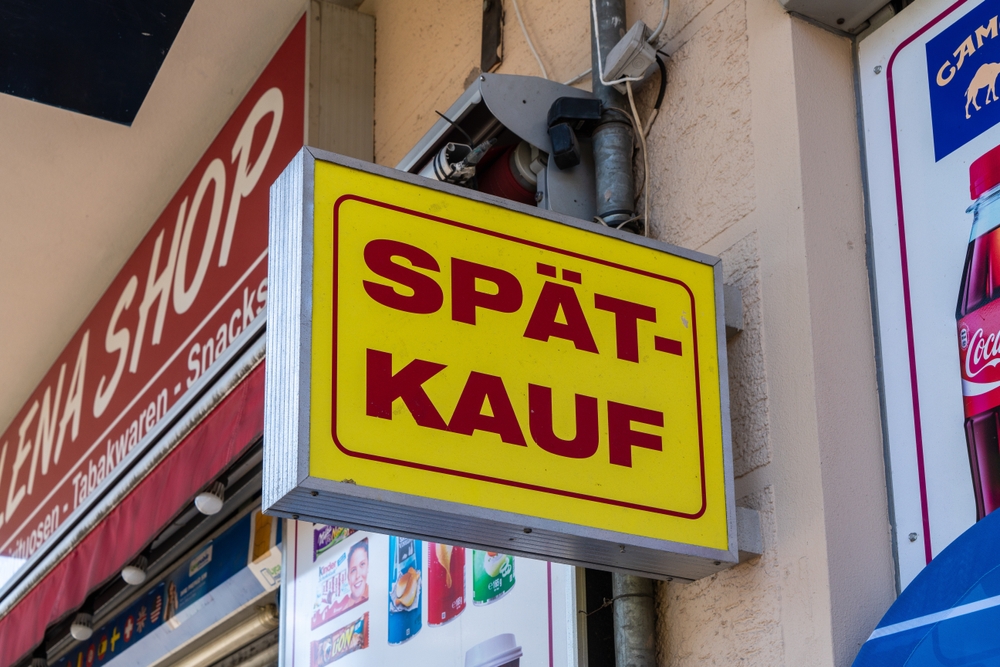While New York is home to bodegas and Paris to tabacs, Berlin is known for its Spätis. A späti, formerly known as a Spätkauf (roughly, “late shop”), is a 24-hour store in most cities. In addition to selling cigarettes, candies, and wegbiers for €1, they also cater to the tourist and local population (“beers you need to take on the move”). However, during the epidemic, they flipped social norms by becoming vital fueling stations for outdoor events, especially during the hotter seasons when nightclubs and bars were closed.
Berlin’s spätis were regarded “invaluable for the continuance of the nation’s growth” and permitted to stay open under the strict lockdown imposed, much like France’s boulangeries, wines, and cheese stores. Around one thousand spätis may be encountered in the city’s central areas, and much like the Bäckereien (bakeries) of the city, they can be found on virtually every street. Their sheer number makes it hard to believe that they can all make a living off of peddling the same products, such as the multicolored bags of Haribo candies, the square-shaped chocolate bars produced by Ritter Sport, and the abandoned bottle of shampoo.
Many of which are owned by New Berlin residents have their distinct character. While most stores carry a similar range of products, those in each kiez (a term for a local community) try to set themselves apart by catering to the tastes of their clientele.
Since spätis and their kiez are inseparable, it’s easy to see why many Berlin residents have a tender place for their neighborhood. “Berlin’s strong sense of neighborhood and community is an integral part of the city. It’s conveniently located, close by, and easily accessible on foot; moreover, as supermarkets grow, fewer similar establishments remain, “said Nolte.
Machin remarked, “As the crowds leave Templehofer Feld during the night, they usually scatter to the several spätis in the area.” “They recognize everyone, which is amazing, but they also recall all the occasions in which you had been a drunken idiot,” she says of her favorite local techno location.
Late opening and closing times also contribute to the “especially German emphasis,” as Nolte puts it. The object’s tag, the späti, suggests that it is late work times, as store hours in Germany have traditionally been quite regulated.
In 1950, “Spätverkaufsstellen” (literally: “late outlets”) commenced servicing late-night employees in the prior communist state of East German after finishing their shifts. The Berliner Zeitung said that there were more than a hundred of these shops in Berlin prior to the collapse of the Berlin Wall, but all were located in the East. Before the city was reunified, those in the West who wanted a beer or cigarettes at night had to go to a petrol station, but afterward, spätis began popping up all over the place. Even though late shops can be found in other parts of Germany today, their long history in Berlin gives them their distinctive character.
There’s more to spätis than meets the eye, as seen by the shaky (yet mysteriously resilient) wood-topped tables and seats inside and outside the establishment. Berlin locals often meet at spätis to socialize and drink beer, soda, or coffee. Not only are they more affordable than clubs, but they also serve as a kind of melting pot, attracting a wide range of people from Tinder dates and Turkish females to British stag parties and senior German construction workers.
Rosenbach Kiosk is conveniently located just off Rosenthaler Platz in Mitte, next to a central U-Bahn station and the popular Volkspark am Weinberg, where locals like to meet up with friends and spend lazy afternoons sipping cold Berliner Kindl pilsner on the grass. It’s open all night and every night, so early risers can get a fresh bun or pastry on their way to work.
However, the area takes on a new appearance after nightfall arrives. It’s a “party späti,” which is similar to a bar in that it’s a place where people go to socialize and drink. Berliners and tourists alike crowd around the tables on the pavement outdoors on Friday and Saturday nights. Inside, customers are always waiting in line for more beer, additional Fritz-kolas, which include Germany’s version of Coca-Cola, and more tobacco packets.







